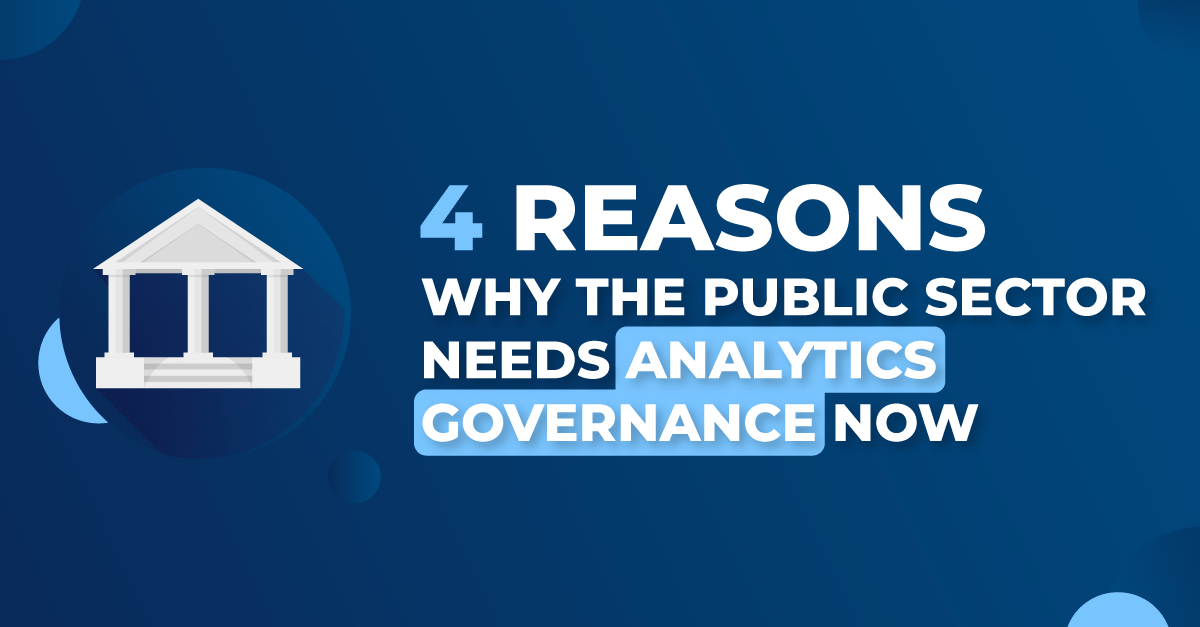From Transparency to Trust: 4 Reasons Why The Public Sector Needs Analytics Governance Now

Analytics Governance Isn’t Optional In The Public Sector. It’s Urgent.
In the public sector, data is more than a resource; it’s a public good. Whether it’s a dashboard tracking COVID-19 cases, a budget report for a city council, or a performance scorecard for a federal agency, data analytics is increasingly the lens through which citizens view their governments.
But what happens when that lens is cracked?
In 2024, a major European city published a public-facing dashboard showing a 12% drop in crime. The media picked it up. Politicians celebrated. But a week later, the dashboard was quietly taken down. The issue? A filter misconfiguration excluded two entire districts. The real figure was a 3% increase.
This isn’t an isolated incident. It’s a governance failure, and it’s happening everywhere. The result is not of a data problem, but of a problem related to its use in the BI/Analytics layer.
This is why the public sector can’t afford to ignore Analytics Governance any longer.
Why Public Agencies Need Analytics Governance
Here are 4 reasons why Analytics Governance should be part of a public agency’s global governance strategy:
1. Because Compliance Isn’t Optional, It’s Enforced
Public agencies are held to higher standards of transparency and accountability. Whether it’s GDPR, CCPA, FOIA, or internal audit mandates, the cost of non-compliance isn’t just financial, it’s reputational. With Wiiisdom, agencies can continuously certify dashboards and reports, ensuring that what’s published is not only accurate but defensible.
2. Because Manual QA Is Slowing You Down
Most BI teams in government still rely on manual checks to validate dashboards and reports. That’s not just inefficient and time-consuming—it’s risky. Given that many Western countries are in debt and are looking to be more efficient (we’ve seen that with the USA and the Department of Government Efficiency (DOGE) initiative), automating quality checks will allow organizations to do more with less. To help you achieve this, Wiiisdom delivers automated validation capabilities to guarantee accuracy and minimize risks so that you can be sure decisions are made on trustworthy data.
3. Because Public Trust Is Earned—One Dashboard at a Time
The data consumers don’t see your data pipelines. They see your dashboards. And when those dashboards are wrong, trust erodes. Despite all your work you may have done on governing your data, it’s worthless if you don’t govern what your end users see, the BI & Analytics. This risk is even greater for federal agencies with public-facing portals that embed dashboards. A single misconfigured filter or outdated metric can mislead thousands or millions of people in real time. Wiiisdom helps agencies ensure an optimal user experience by validating dashboard interactions, verifying load capacity, and ensuring data accuracy through our automated dynamic certification.
4. Because One Error Can Damage Your Reputation Forever
In the public sector, trust is very fragile. One misreported dashboard, one misleading metric, or one silent error can erode years of credibility. Unlike a broken link or a missed KPI, reputation isn’t easily fixed. Analytics Governance helps ensure that trust isn’t lost.

Final Thought: Analytics Governance isn’t a barrier, it’s a bridge
Analytics Governance must no longer be optional for the public sector. The risk is too great, not only for the organization itself, but for the wider public. By implementing governance frameworks for data analytics, public agencies can be sure their dashboards, reports, and insights are continuously validated, certified, and monitored to ensure accuracy and trustworthiness around the clock.
If you work for a public sector organization and are curious to learn more about Wiiisdom’s Analytics Governance solutions, get in touch with us.

